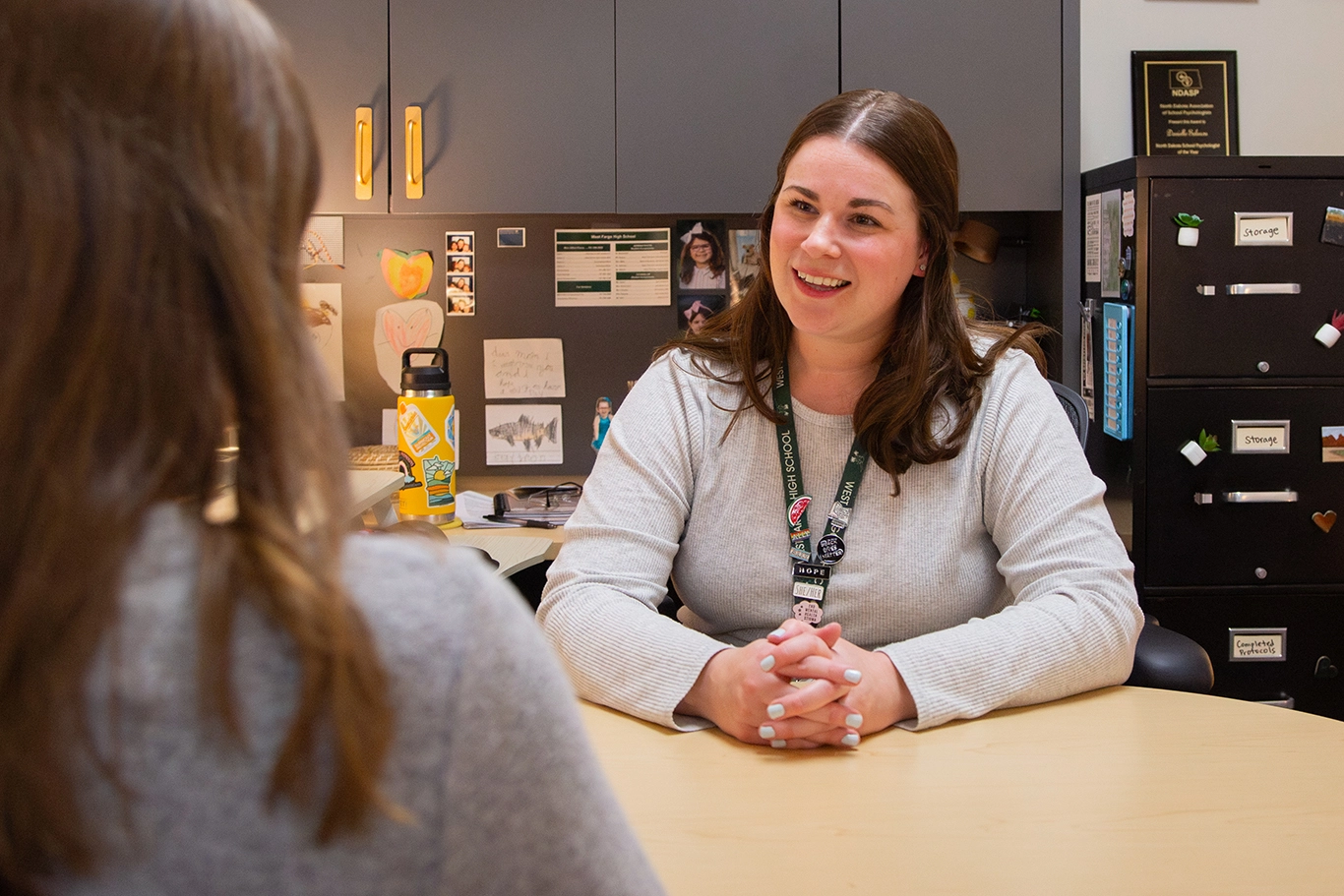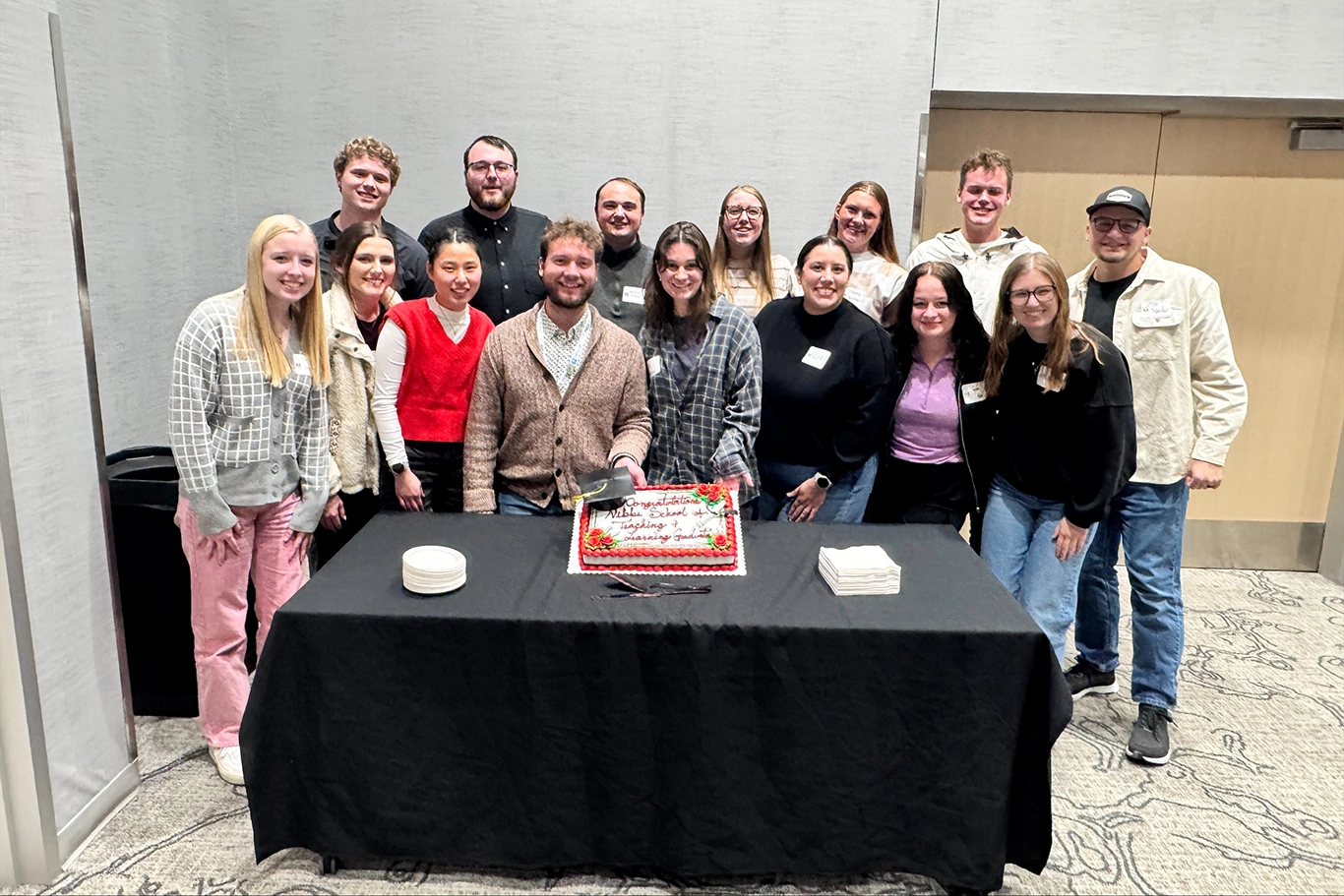Zero-cost textbooks being implemented at MSUM
The average college student spends between $628 and $1,200 annually on books and supplies, however, this stat doesn't tell the full story. Students regularly pass on buying textbooks altogether, due to ballooning prices.
In 2023, a Bay View Analytics study reported that 83% of students reported a negative impact due to the cost of course materials. These negative impacts include taking fewer courses or passing on a course to save money, earning a poor grade or failing the class, dropping or withdrawing from a course, or simply not buying required texts.
This is happening on Minnesota State University Moorhead's campus as well, with students like Aedan Fish. "The cost of textbooks has made it more difficult to pay for school. I usually have to pay hundreds of dollars more than what I was expecting. In some instances I don't buy the book at all because of the price," he says.
This is an experience MSUM faculty can relate to, as Jared Ladbury, associate professor of psychology, reflected on his undergraduate experience: "Twenty years ago, I personally had to drop a course because I could not afford the textbook," he says. "Providing free materials would be one less barrier toward getting a degree in higher education."
Ladbury, along with Theodore Gracyk, professor and co-chair for the History, Languages & Humanities Department, have become early adopters of Minnesota's Z-degree project, which aims to cut the cost of textbooks to zero for general education courses.
This provides better access to students like Victor Acosta, who struggle to pay for school. "I don't have a job, so courses like this help me to still be able to attend school, and not have to worry about where the money for textbooks will come from," Victor says.
Z-degrees are complete associate or bachelor's degree programs that exclusively use course materials that are free for students. These start with the implementation of Z-courses, classes with open-source, open-access, or library-curated materials.
Gracyk recently crunched the numbers on how much money this would save students in one of his classes. "I have 25 students, and the book costs $125. This class would save over $3,000," he says.
Not only does this benefit the students, but professors also stand to gain from teaching out of free resources. Through the Z-degree project, professors get compensated for creating an open-access textbook for students. Ladbury created his Environmental Psychology book this way, when the text previously used was no longer being updated.
Another advantage for professors (and students) is the ability to assemble a resource from a part of, or multiple different open-source texts due to creative common licensing. Gracyk explained that for some of his courses, students were required to buy a large textbook that covers too much to be taught in a semester.
"The students had to buy the book to read one third of it. The other two-thirds aren't going to be read, so with open-source materials I can hand them a book with just the applicable material in it," Gracyk says.
This is also a benefit for professors and students inside the classroom. Since students often pass on buying required textbooks, they miss out on understanding the material and engaging with the class. "It's nice to know that the students are connecting with the class resources, because they all have free access to it," Ladbury says.
Ladbury has been an advocate of open resources for a long time, and as he's advocated, he's also seen the challenges that come with it. He pointed out that for English professors, implementing a Z-course can be difficult, because they often assign copyrighted materials for students to read.
Professors have also raised concerns about the quality of open access resources, although Ladbury has pointed out that the open-source books he uses are reliable. "The intro to psychology open-source book was written by a committee at the American Psychological Association," he says.
Free access to course materials through the Z-degree program promotes MSU Moorhead's goals of equity, affordability, and quality of education for all. As the cost of education goes down, an equal opportunity to learn grows exponentially.
"Our first emphasis is to provide an Associate of Arts Z-degree, so that all of general ed would have no extra cost. Over a two-year period, that's huge savings for a student," Gracyk says.
Starting in the fall of 2025, all of the courses that Gracyk teaches will be Z-courses, and he is continuing to push his colleagues to do the same. "We want to provide courses that are going to eliminate cost as much as possible," he says.
Ladbury is transitioning to all Z-courses and advocating for lower costs for students. "It's another way to lower the tremendous cost of higher education," he says.
Many students struggle with the cost of higher education, which is why MSU Moorhead is committed to providing Z-courses, and eventually Z-degrees, to allow greater access to the learning that students need to be successful in their careers. MSUM is set to unveil the complete Z-degree plan in spring of 2026, but in the meantime, many professors like Gracyk and Ladbury will be working to implement zero-cost materials into their courses, to better the lives of the students right here on campus.
This project is supported in part by funding provided by the Minnesota Legislature and Educational Development and Technology division of Minnesota State through the Z-Degree Initiative.
References used
Hanson, Melanie. "Average Cost of College Textbooks [2023]: Prices per Year." Education Data Initiative, 3 Nov. 2023, educationdata.org/average-cost-of-college-textbooks.
"National Survey on Student Course Material Affordability, 2023." Bay View Analytics, www.bayviewanalytics.com/reports/student_course_material_affordability.html. Accessed 10 Oct. 2024.
Make Sure Your Story Is Heard
Let us know how your life has been changed by being a Dragon: tell us your Minnesota State Moorhead story today!
Send Us Your Story


